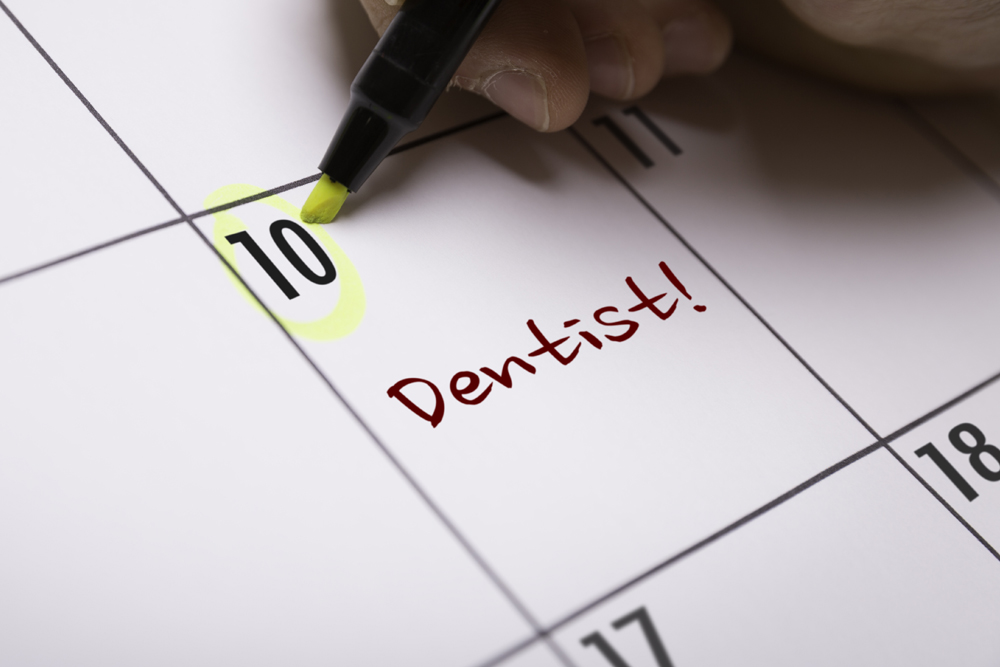

How do you cure your dental phobia?
In the past, phobias have often been treated as a personality quirk. Now, the medical profession has a much more structured approach to supporting phobia sufferers and many more effective treatments at their disposal. When you look at the statistics, it is no surprise that they are exploring ways to tackle the problem.
Around 1 in 23 people suffer from phobias – that’s 2.5 million in the UK. And while research shows that most phobia sufferers can be helped, statistics in the UK also show that only about 20% of specific phobias disappear on their own for an adult.
So what does this mean for dental phobia sufferers? In the past, you probably had the choice of facing your dentist or avoiding him. Now, in between those two extremes you have many more options. What’s more, many of those options have already proven successful for other phobia sufferers. Of course, every phobia is individual and different people find different solutions. But here are a few ideas to begin with.
Can you face your fear?

If you ever tell someone you have a phobia, most people seem to believe that you should always face your fears. Of course, that is far easier said than done! It is also usually said by people who have no experience of suffering from a phobia and therefore cannot understand what you’re going through. However, many people can overcome their phobia by facing it – provided they do it in the right way and with the support of professionals. It is known as Exposure Treatment. In most cases, you begin by imagining a list of things or situations that make you phobic. Then you imagine facing the least frightening one while practising relaxation and breathing techniques. It takes time, but this technique of gradual exposure to your phobic stimuli is usually very successful.
Do ‘alternative’ treatments work?
There are lots of alternative treatments available that make fantastic claims in terms of success rates. Many therapeutic practitioners will have their own approach to helping you get rid of an unwanted phobic habit. Hypnosis techniques work for many people. NLP (Neuro Linguistic Programming) techniques are very popular in America, and begin by attempting to understand what keywords trigger your phobia and how you can adapt your mindset to respond differently to them.
As soon as you start to talk about alternative treatments that have pseudo-scientific names, many people begin to be suspicious. And often quite rightly so. After all, suffering from dental phobia makes you vulnerable. However, it is important that you don’t simply rule alternative therapy out. The phrase encompasses many different approaches which work for all sorts of people. Many of those approaches are also being adopted by dentists, as they can see they have real value in reducing patient anxiety.
So let’s forget the sci-fi names for a moment – let’s simply focus on talking and relaxation. After all, these two themes are usually the key components in any solution to dental phobia. As many phobia sufferers can testify, if you turn a worry over and over in your mind, the worry can grow. However, talking about your thoughts and feelings can help you to deal with the times when you feel troubled about something. Talking about it can help you work out what is really bothering you and explore what you could do about it. It can help you work out where your negative feelings and ideas come from and why they are there. This is why, often, one of the key people that dental phobic patients need to talk to is their dentist. If you can explore the problem together with your dentist, talk it through and feel as though your dentist is listening and understanding, that’s often all the therapy you need.
Relaxation techniques are also an important element in treating phobias. After all, for many phobic patients, the battle is fought before they even set foot in the dental practice. The very thought of visiting the dentist is enough to make them anxious, panicky, nervous and nauseous.
What can dentists do?
Modern dentists have a number of techniques at their disposal for treating patients who suffer from dental phobia. However, many of these techniques treat the anxiety, rather than the phobia itself. For example, patients who are afraid of the dental drill may be able to find a dentist who practices air abrasion techniques – a quieter, less painful approach.
Other techniques such as sedation and numbing gel can also help treat patients suffering from anxiety or pain phobias. However, while they may make the patient more compliant, they don’t tackle the root causes behind the phobia. Really it is more a case of managing the phobia until next time. Having said that, many dentists do provide exceptional environments in which dental phobic patients can relax, feel comfortable and feel as though they are genuinely well-looked after. In fact, some dental practices now focus exclusively on dental phobic patients and offer a kind of hybrid solution – a relaxation centre within a dental practice.
For example, you may be able to find a dentist where massage therapists treat patients before they enter the surgery. It makes sense. During a dental visit, tension often occurs in the shoulders, neck and head – so a head and shoulders massage can help nervous patients to relax. Reflexology is also a useful treatment for many dental phobic patients. Reflexology helps to relieve tension in the upper body and allows the facial muscles to relax. As a patient relaxes, the flow of blood slows as the breathing pattern decreases. If the treatment requires anaesthesia, reflexology techniques can be especially important as a more relaxed patient is more receptive to anaesthetic. Some dental practices go even further. Don’t be surprised to find massage chairs in waiting rooms, or opportunities for manicures and pedicures before your treatment. The concept of a ‘dental spa’ has already caught on in America and is fast becoming a reality in the UK too.
If you would like to find out more about the different treatments and products available to dentists, take a look at the other articles on this website.
What is right for me?
Ultimately, deciding what is right for you depends on deciding what is right for your phobia. There are many different types of dental phobia. The average dental environment is full of possible stimuli- sounds, smells, sights – that can trigger a phobia. For many phobic patients, it can be trial and error discovering how to cope. Many begin with basic relaxation techniques and breathing exercises, enabling them to take one small step at a time. The first step might simply be to find the courage to phone for a one-to-one consultation with a dentist. The second step might be to meet their dentist to discuss their fears. At each stage in the process, the opportunities to gain more support, more advice, and more options for treatment grow. As those opportunities grow, you usually find that a patient’s confidence grows too.
Some phobias are harder to beat. However, whether you eventually find that hypnotherapy works, or that sedation is best, or that something totally different altogether helps to cure you, the principles behind the treatment stay the same. By talking about your phobia, especially with professionals, you give yourself access to different types of treatment and continued help. As a phobic patient, it is often far easier to find excuses for not having dental treatment than to admit that you are afraid. But if the first step to tackling your phobia is something as simple as talking to the right person, then the way forward could be easier than you ever imagined.

